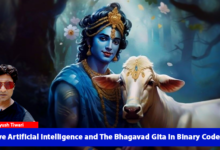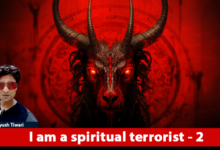
|
Getting your Trinity Audio player ready...
|
Hindu have been waiting for Kalki for 3,700 years.
The Kalki Avatar is a prophesied incarnation in Hindu religions, considered the final avatar of Lord Vishnu. Descriptions of Kalki Avatar are primarily found in religious texts, especially in the Puranas. The prophecy foretells Kalki’s arrival in a future time marked by increasing unrighteousness and a rise in destructive tendencies. Upon Kalki’s advent, it is believed that righteousness will be restored, and the principles of dharma will be reestablished.
Various religious scriptures provide different accounts of this avatar, and interpretations often involve symbolic and allegorical meanings. The tales and prophecies surrounding Kalki Avatar are integral to ancient Hindu culture and have been passed down through generations.
Buddhists have been waiting for Maitreya for 2,600 years.
Maitreya is a prophesied Bodhisattva in Buddhist teachings, anticipated to appear in the future as a new Buddha. Maitreya is distinct from the concept of “Kalki” as, in Buddhism, Maitreya is seen as the arrival of a new enlightened being, while Kalki is considered the final avatar of Lord Vishnu in Hinduism.
According to Buddhist beliefs, after the departure of Gautama Buddha, Maitreya is expected to manifest as a new Buddha. During the time of Maitreya, it is believed that the teachings of dharma will be revitalized. Different Buddhist traditions have variations in their interpretations of Maitreya, adding nuances to the understanding of this future enlightened figure.
The Jews have been waiting for the Messiah for 2500 years.
In Jewish tradition, the Messiah is a symbol of a future redeemer and liberator. The Messiah is believed to come and bring salvation, eliminate unrighteousness, and restore the Jewish community. Prophecies about the coming of the Messiah are found in ancient religious texts such as the Tanakh (the primary Jewish scripture), and there are various interpretations and commentaries associated with it.
Different Jewish denominations may have varying interpretations of the Messiah’s characteristics and the events related to the Messianic era. It’s crucial to note that there can be differences in perspectives within different Jewish traditions.
Christians have been waiting for Jesus for 2000 years.
The Christian belief centers around the advent of Jesus Christ as the Messiah and Savior. Christians have been anticipating the return of Jesus for approximately 2,000 years, based on biblical teachings. The expectation is rooted in the New Testament, particularly in passages that speak of the second coming of Christ, where it is believed that Jesus will return to fulfill prophecies, judge the living and the dead, and establish the Kingdom of God. The timing and nature of this event have been the subject of theological discussions and interpretations within the Christian faith.
Sunnah waited for Prophet Issa for 1400 years.
The concept of the return of Prophet Isa (Jesus) is rooted in Islamic eschatology. According to Islamic tradition, Prophet Isa is expected to return in the future as part of the events leading up to the Day of Judgment. Muslims have been awaiting this event for over 1,400 years, and it is mentioned in various Hadiths (sayings and actions of the Prophet Muhammad) that Prophet Isa will return to Earth.
The anticipation is based on the belief that Prophet Isa will return to restore justice, defeat the false messiah (Dajjal), and contribute to the fulfillment of Islamic eschatological prophecies. The exact timing and details of these events are matters of interpretation and discussion within the Islamic faith.
Muslims have been waiting for a messiah from the line of Muhammad for 1300 years.
The concept of a messianic figure from the line of Prophet Muhammad is not a central theme in Islamic eschatology. While Muslims believe in the return of Prophet Isa (Jesus) in the future, there isn’t a specific messianic figure anticipated from the direct lineage of Prophet Muhammad.
Islamic eschatology focuses on the signs of the Day of Judgment, the return of Prophet Isa, the appearance of the false messiah (Dajjal), and other apocalyptic events. The anticipation is rooted in various Hadiths (sayings and actions of Prophet Muhammad) that describe these future occurrences. The exact interpretations and understanding of these events may vary within different Islamic traditions and schools of thought.
Shiites have been waiting for Imam Mahdi for 1080 years.
The concept of Imam Mahdi is indeed significant in Shia Islam. According to Shia beliefs, Imam Mahdi is the twelfth and final Imam who went into occultation and is expected to reappear as the Mahdi, a messianic figure, to bring justice and peace.
Shiites have been anticipating the return of Imam Mahdi for over a thousand years. This waiting period is associated with the belief that Imam Mahdi will reappear during a time of great turmoil and injustice, leading humanity towards a state of righteousness and harmony. The specific details and interpretations of the events surrounding the reappearance of Imam Mahdi may vary within Shia Islam.
Druze has been waiting for Hamza ibn Ali for 1000 years.
The Druze community holds a belief in the eventual return of Hamza ibn Ali, who is considered an important figure in their faith. According to Druze eschatology, Hamza ibn Ali went into occultation and is expected to return at a future time. The Druze have been waiting for this event for about a millennium.
The specifics of this belief, including the role and significance of Hamza ibn Ali’s return, are intricately tied to the internal teachings and traditions of the Druze faith. As with many religious traditions, interpretations and understandings may vary among different communities and individuals within the Druze faith.
Most religions adopt the idea of a “savior” and state that the world will remain filled with evil until this savior comes and fills it with goodness and righteousness.
Maybe our problem on this planet is that people expect someone else to come solve their problems instead of doing it themselves.




